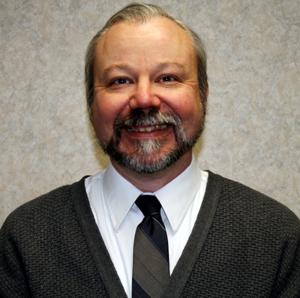
By Deacon Frank Agnoli
Why do we gather as a community for Sunday Mass?
Some might say: because it’s an obligation … or because my parents make me go … or it’s just what we do. On a deeper level, we gather — or, better, are gathered — because Christ calls us together. In other words, we do more than come together on our own; we are “assembled” by the Holy Spirit. The Greek word that we translate as “church” is ekklesia — and it refers to being summoned together, to an assembly. We come because we are invited. God acts; we respond. That’s the basic dynamic of liturgy, and of the Christian life: God does something first, God loves us; we respond; we love God back. Since everything is gift, if we are going to really pray the Mass we must develop a deep sense of gratitude. After all, “Eucharist” comes from the Greek word for “thanksgiving.”
Let’s be honest. Sometimes, that’s hard to do. Advertising all around us tells us that we deserve everything we get, and then some. Most of us have never had to go without, have never had to be dependent on others. Gratitude — and the humility it requires — is not a mainstream value in our culture. So, even to say “yes” to Christ’s invitation is already to step away from what passes as “business as usual” into a new way of looking at the world around us.
Church: Assembly Required
That’s not always an easy transition to make; so, in the Mass, we have what’s called the “Introductory Rites.” These words and actions help us to form community and enter into the world of worship. We don’t leave “the joys and the hopes, the griefs and the anxieties” (Gaudium et spes, #1) that mark our lives outside; that’s the stuff of our prayers; that’s what we lay on the altar. But we do step away from that world — not to abandon it or run away from it, but so we can be sent back to minister in and to it.
We step outside of normal time (what the Greeks called chronos, or clock-time) into timeless time, opportune time, the fullness of time (in Greek, kairos). If someone asks, “Do you have the time?” you might answer: “It’s 3 o’clock” (chronos). Or you might say: “Sure, what do you need?” (kairos). Perhaps we ought to take our watches off when we come to Mass, a reminder that we’ve moved from chronos into kairos; from clock-time measured in minutes into available time measured in moments; from our usual world to the liminal (in-between) world of liturgy, a world that straddles heaven and earth.
So, we physically gather, “assembled” by the Spirit. We come from north and south, east and west, to our parish church. The vesting and procession of the ministers echoes our own vesting and procession from home, as well as the journey that is the Christian life. We greet one another; it is in the simple act of hospitality that we first begin to encounter Christ. We pray quietly. In some ways, we each do our own thing — but then, we are called together. We stand. We sing. We give physical expression to a spiritual reality: we are all members of one body, the body of Christ, called together by the head of the body. By standing and singing together we not only express that reality but we help to bring it about: no longer individual “I” — and not even “we” the crowd — but “I” the Church, Christ.
The Ars Celebrandi
As a priest or deacon, do I realize that as I kiss the altar I am kissing Christ? Do I make this gesture with reverence and intention? Do I treat the assembly with similar reverence?
As we noted in the first article in this series, as ministers we can make it easier or harder for people to encounter Christ at Mass. So, if the purpose of the introductory rites is to help form us as a community:
As a parish and as individual ministers, how are we fostering that dynamic?
Are we a hospitable parish?
Do ushers and greeters warmly welcome parishioners and strangers alike?
Are our buildings, liturgies, and programs accessible?
Do we rely too much on amplifying the voices of the cantor and choir, signaling that the voice of the assembly is not that important?
Do we sing the opening hymn in its entirety, showing that its primary purpose is to unify the assembly rather than simply accompany the movement of the ministers?
Entering the Mystery
As I go to church, do I realize that I am living out my baptismal priesthood, that I am assembling with my brothers and sisters in Christ as a response to God’s call?
Do I see getting ready for Mass as my way to vest and process, a symbol of my lifelong journey to God?
Do I take off my watch and turn off my cell phone, reminders that I am stepping out of day-to-day space and time?
(Deacon Agnoli is director of liturgy for the Davenport Diocese.)








